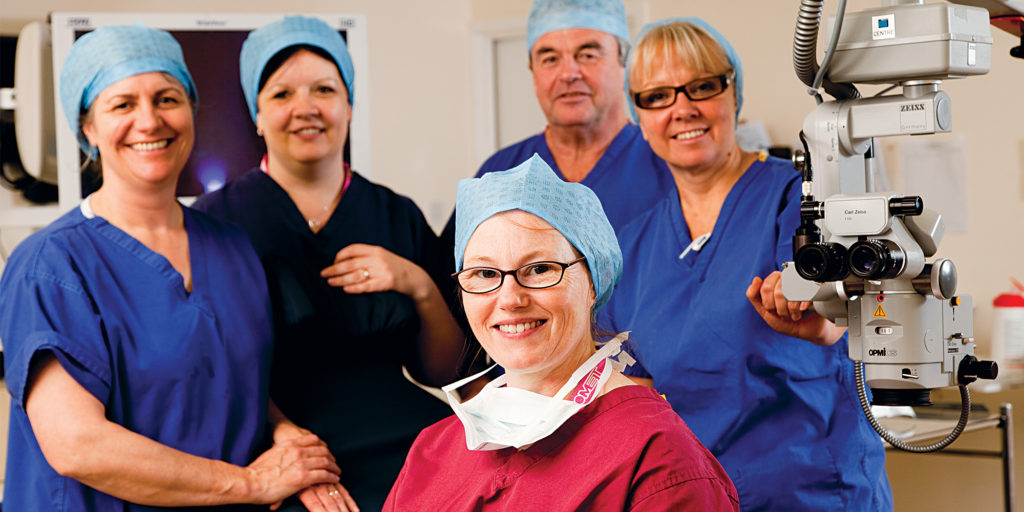Jump for joy
Don’t let a hernia hold you back this summer! Mr Michael Clarke, Consultant General Surgeon at Duchy Hospital, gives us the facts.
Summer is upon us; the sea is warming up, the evenings stretching out and the sunshine is showing its face ever more frequently. Cornwall comes alive this time of year, and with so many fun activities and events to keep us busy this season, hernia pain shouldn’t be stopping you from enjoying life. But how do you know when it’s time to get treatment? We speak to Consultant General Surgeon, Mr Michael Clarke, who sheds a little light.
“A hernia is a hole in the muscles of the abdominal wall, through which the contents of the abdomen can protrude,” Mr Clarke explains. “Different types include groin hernia (inguinal and femoral), paraumbilical (belly button), incisional (at the site of a previous surgical scar), and less common sites are spigelian, lumbar and obturator. They can be present at birth or occur later in life and can affect one or both sides, often arising at points of natural weakness in the abdominal wall, due to factors such as smoking, obesity, repeated heavy lifting, or coughing.
“Symptoms of a hernia can include protruding, which happens commonly on standing or coughing and may cause an aching or a painful sensation. This will often resolve when lying down, so that the hernia can drop back inside, or by pushing the hernia away. However, sometimes the hernia will not be able to be pushed back and may not drop back inside – this is called ‘irreducible’. In severe cases, this may cause ‘strangulation’ of the bowel or fat resulting in the need for emergency surgery. Alarm symptoms for this are redness or tenderness over the hernia, with or without vomiting.
“There are generally two treatment options for a hernia, and these are ‘watch and wait’ or surgery. Whilst a hernia will not normally heal on its own and may become bigger over time, sometimes a ‘watch and wait’ policy may be advised. This is generally in asymptomatic or minimally symptomatic male inguinal hernia patients, in those with any type of hernia who are not fit for surgery, or those patients who wish to avoid surgery. On the other hand, surgery may be recommended where the hernia is symptomatic or affecting the patient’s quality of life, to prevent the risk of future hernia strangulation or where a complication has arisen.
“When thinking about which operation may be right for you, there are several options available. These include open surgery, keyhole surgery, general anaesthetic, and local anaesthetic. The right one will depend on the type of hernia, symptoms, and patient choice. This will all be discussed with your surgeon, who will have your best interest at heart and can support you in your decision making.”
If you would like to book an initial consultation with Mr Clarke to get you on your way to a pain-free summer and beyond, give Duchy’s dedicated Private Patient Team a call.
DUCHY HOSPITAL
01872 438080
www.duchyhospital.co.uk













